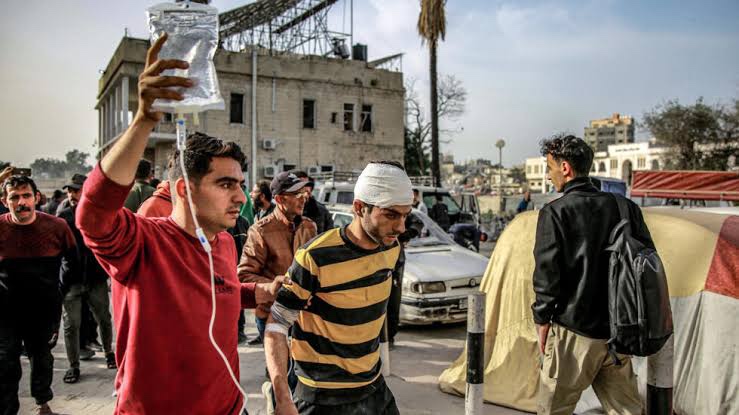Top world court orders Israel to ensure urgent aid reaches Gazans

The International Court of Justice, the highest court globally, has issued a directive to Israel, urging the country to facilitate the delivery of essential food and urgent humanitarian aid to Gaza. This order, delivered on Thursday, follows the United Nations’ repeated warnings about the imminent threat of famine in the besieged region, attributing the dire situation to Israel’s restrictions on aid. The UN has described the levels of hunger and deprivation in Gaza as “horrifying,” with the risk of famine becoming a grim reality.
The Hague-based UN court emphasized the urgency of the situation, stating that Palestinians in Gaza are not merely facing a risk of famine, but famine is already taking hold. Israel has been instructed by the court to take immediate and effective measures to ensure the timely provision of critically needed basic services and humanitarian assistance to Gaza’s population.
The conflict escalated after Hamas’s attacks on October 7, prompting Israel to impose a comprehensive siege on Gaza, which included blocking essential supplies such as food, water, and medicine. While some aid deliveries have been permitted subsequently, humanitarian organizations argue that the quantities allowed in are far from adequate. Moreover, the UN human rights chief has raised concerns that Israeli restrictions could constitute the use of starvation as a weapon of war.
The desperation in Gaza has reached alarming levels, underscored by tragic incidents where individuals drowned or were trampled to death while attempting to access parachuted aid parcels. Matthew Hollingworth, the World Food Programme’s Palestine director, highlighted the severity of the situation, emphasizing that Gaza faces an unparalleled threat of famine, exacerbated by the scarcity of clean water and the arduous journey individuals undertake to access basic necessities.
Despite calls for an immediate ceasefire by the UN Security Council earlier in the week, heavy fighting and sustained bombardments continue to ravage Gaza. The conflict has inflicted widespread devastation, turning significant portions of the territory into uninhabitable areas and severely impacting the already fragile healthcare system. The Israeli military has targeted hospitals, alleging that militant groups like Hamas and Islamic Jihad are using these facilities as cover.
As the conflict persists, concerns about its regional implications have grown. Israel’s exchanges of fire with Hamas ally Hezbollah have raised fears of a broader, regional conflict. Efforts to broker a truce by mediators from the United States, Egypt, and Qatar have yet to yield results, with talks currently deadlocked. Meanwhile, Washington’s abstention from a UN Security Council vote on a resolution for an immediate ceasefire has strained its relationship with Israel, prompting discussions about alternative approaches to address the crisis.
In response to the ongoing conflict, Palestinian President Mahmoud Abbas has approved a new government led by Prime Minister Mohammed Mustafa. The new cabinet aims to unify institutions, including assuming responsibility for Gaza, signaling a potential shift in governance dynamics in the region. However, the entrenched power struggle between Hamas and Abbas’s government complicates efforts to resolve the crisis and chart a path towards lasting peace and stability.
